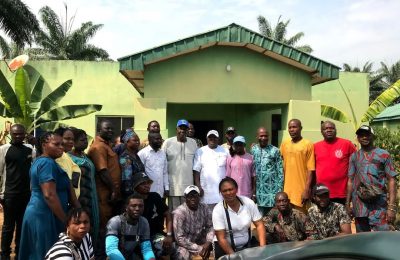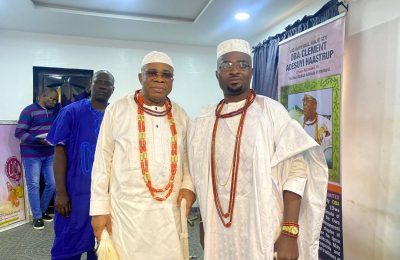

IN a bid to implement S.25 of the National Health Insurance Authority Act, which makes provisions for the establishment of the Vulnerable Group Fund. The Federal Ministry of Health revealed that the Federal Government plans to offer free health insurance to 83million poor Nigerians in 2023. The 2023 proposed budget also contained the sum of N297, 219,120, for National health Insurance Scheme, which was captured as Research and Development for the purpose of Elderly Health Insurance Coverage. While we welcome this intention, it is also necessary to interrogate the process to which the beneficiaries of the VGF were identified and the framework for their inclusion. The Federal Ministry of Health seems to be relying on the 2019 data of the NBS on Nigeria Poverty and Inequality Index. According to the National Bureau of Statistics 2019 Poverty and Inequality in Nigeria Report, 40 percent of the total population, or almost 83 million people, live below the country’s poverty line of 137,430 naira ($381.75) per year. According to the report, the data was captured from the latest round of the Nigerian Living Standards Survey, conducted in 2018-2019 with support from the World Bank’s Poverty Global Practice and technical assistance from the LSMS program.
The data of the NBS are nominal data which are not subject to physical verification. It does not give accurate information on the identity of health poor. This method should not be applied in determining the actual number of vulnerable group persons requiring free health insurance in Nigeria. Rather than relying on nominal estimation, the Federal Ministry of Health should adopt physical enumeration to determine the number of beneficiaries as vulnerable persons across the states and local governments. The data should not also rely on beneficiaries contained in the current National Social Register which contains the names of poor Nigerians. Recall that under the conditional cash transfer program of President Muhammad Buhari, 30 million Nigerians were claimed to have been captured as beneficiaries of the cash transfer programs. It was observed that the data under the social register was not able to prevent frauds relating to; wrong profiling of beneficiaries and multiple enrolments. Notwithstanding the recognition given to the parents as caregivers, some families were able to register more than one care giver outside the parent as beneficiaries of the fund.

Based on the above, given the importance of health as it relates to the right to life of Nigerians, the government should be thorough in verifying persons as beneficiaries of the VGF. There are unreached communities with a great number of vulnerable and poor households that have never benefited from any form of government social intervention project. Efforts must be made to ensure that these groups of persons are not excluded from the vulnerable group database for health insurance. The national population census would have been a good platform to capture and verify the actual count of the entire population and as well extracts the number of the vulnerable group. However, baring delays in the off take of the National Census, the Federal Ministry of Health should work with well meaning stakeholders such as, Civil Society Organizations in the health sector, States Ministries of Health, Local Government Councils, Secondary, Tertiary and Primary Health Care centers to produce a framework for accountability and transparency in the data collection and enrolment of vulnerable persons under the health insurance scheme. The process should include the formulation of a validated checklist for identification and determination of those considered as vulnerable persons entitled to free health insurance in the 36 states plus FCT. The checklist should be able to clarify the level of vulnerabilities of such beneficiaries. It should be able to ascertain the economic liabilities and other forms of limitations which qualify such persons to be beneficiaries under the scheme. The checklist should be accompanied by a data capturing strategy for the enrolment of vulnerable persons across the federation.
An effective strategy would mainstream publicity and awareness on the economic benefits of the FG Vulnerable Group Insurance Program. It would also consist of strategies to enroll vulnerable persons in hard to reach areas without leaving any one behind. Captured enrollees must be provided with options to choose health care facilities closest to them for the sake of accessibility. The register of captured beneficiaries must be made available at the beneficiary’s preferred Health Care Facilities. For the sake of accountability, the entire process must be collaborative with participation of non-state actors. The beneficiary database should be regularly updated with new entrants and exit of beneficiaries. A verifiable, accountable and valid data base would guide the federal government on its financial obligations and plans towards catering for the health needs of the vulnerable group in Nigeria.
- Emejuiwe writes in from the Centre for Social Justice, Abuja
YOU SHOULD NOT MISS THESE HEADLINES FROM NIGERIAN TRIBUNE
PICTORIAL EXPLAINER: How To Identify Fake New Naira Notes
The Central Bank of Nigeria (CBN) has released security features to help identify fake new naira notes. According to CBN’s template, the Security features to look out for are the following…
Ondo Councils’ Workers Shut Down Assembly Over LG Autonomy
LOCAL government workers under the aegis of Nigeria Union of Local Government Employees (NULGE), Ondo, on Tuesday, stormed the State House of Assembly, threatening a showdown with the lawmakers over the signing of local government autonomy…
FG To Discontinue Cash Withdrawal From Public Accounts
The Federal Government is putting the final touches to all necessary measures to stop cash withdrawal from federal, state, and local government accounts. The Director/Chief Executive Officer of the Nigerian Financial Intelligence Unit (NFIU), Modibbo Hamman Tukur, revealed…
Reps Probe Crude Oil Sales Over $2.4bn Revenue Loss
The House of Representatives on Tuesday unveiled plans to investigate the allegation bothering on the alleged loss of over $2.4 billion in revenue accruing from the illegal sale of 48 million barrels of crude oil export from 2014 till date…
Emefiele/DSS Tango: Falana Asks Judiciary To Treat Civil Liberty Cases Equally
LEADING rights lawyer, Mr. Femi Falana, on Tuesday addressed the controversial move by the nation’s secret police to arrest and detain the embattled Governor of the Central Bank of Nigeria (CBN), Godwin Emefiele…
As a follow-up to its redesign of the N200, N500, and N1000 banknotes, the Central Bank of Nigeria (CBN) recently announced a new policy that mandates deposit money banks and other financial institutions to ensure that…








